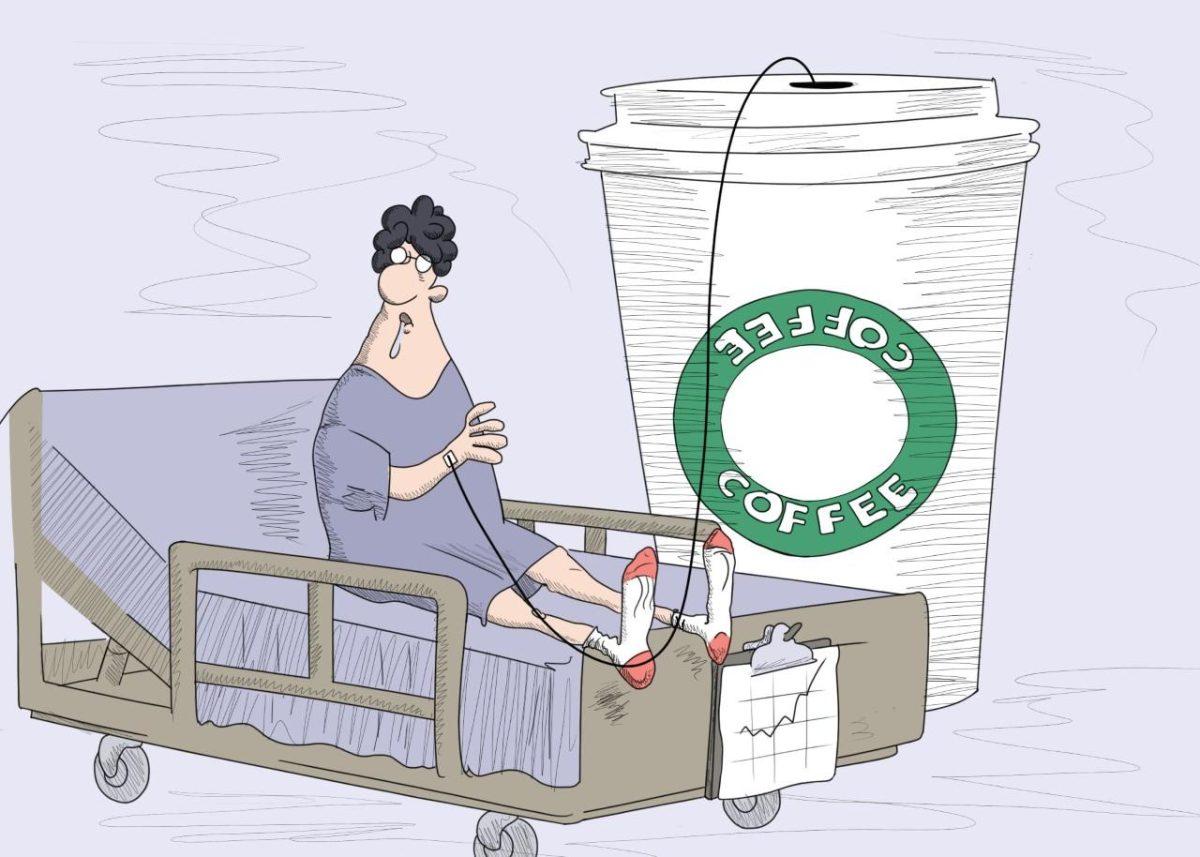While some people are addicted to drugs and alcohol, an overwhelming amount of students find themselves addicted to something a lot more obtainable: caffeine. With midterms looming, students are placing all of their best bets on late-night, last-minute study sessions, fueled by nothing but energy drinks and espresso.
Students who frequently find themselves choosing this quick fix should become more aware of what they’re putting in their bodies and that caffeine addiction is something serious. A quick disclosure, however: I’m on my second coffee today while writing this article.
I’ll be the first to admit that there’s nothing better than getting a second wind of Middleton CC’s at midnight.
However, this constant ingestion of caffeine creates an unhealthy reliance on the chemical, basically altering your normal brain functions.
In the brain, adenosine binds with adenosine receptors to slow down nerve cell activity. This connection creates the drowsiness that caffeine gets rid of. Caffeine tricks adenosine receptors into thinking that it is adenosine, effectively speeding up your brain activity.
From Bang energy drinks to sweet tea from Cane’s, caffeine is not just coffee. Caffeine is even present in some of our favorite soft drinks, especially the diet and zero calorie ones. I can tell you from firsthand experience, withdrawals from caffeine can range from migraines to slowed motor skills to insomnia.
Your body basically becomes reliant on it to function properly, just like a drug. These symptoms only have one solution: an even bigger fix of caffeine. It can get ugly if you don’t have quick access to it. As the effects of a good Monster energy drink wear off, an intense energy crash can hit and slow you down even more than before. It is completely counterproductive and temporary, and the brief burst of energy is not worth it.
In some serious cases, caffeine’s effect of increasing your heartbeat can even lead to cardiovascular issues, and sometimes, in extreme cases, death. Though caffeine overdoses are rare, they still occur every year to unsuspecting users.
It is so simple to not even notice how addicted you are to caffeine until you take it away. This is why doctors suggest decreasing your caffeine intake slowly, instead of going cold turkey. Making your third coffee of the day decaf could only help you, not hurt you.
There are plenty of healthy alternatives to getting your caffeine fix, ranging from kombucha to coconut water. As trends move to more natural alternatives instead of familiar food and drinks that are bad for you, a simple trip to Whole Foods could better your long-term brain function. Think twice before you order that Starbucks blonde cafe americano with 170 mg of caffeine, for your own good.
Gabrielle Martinez is a 19-year-old mass communication freshman from Gonzales, Louisiana.
Opinion: Caffeine is harmful to student health, we need to cut down on the energy drinks, espresso
March 8, 2020
Coffee cartoon





